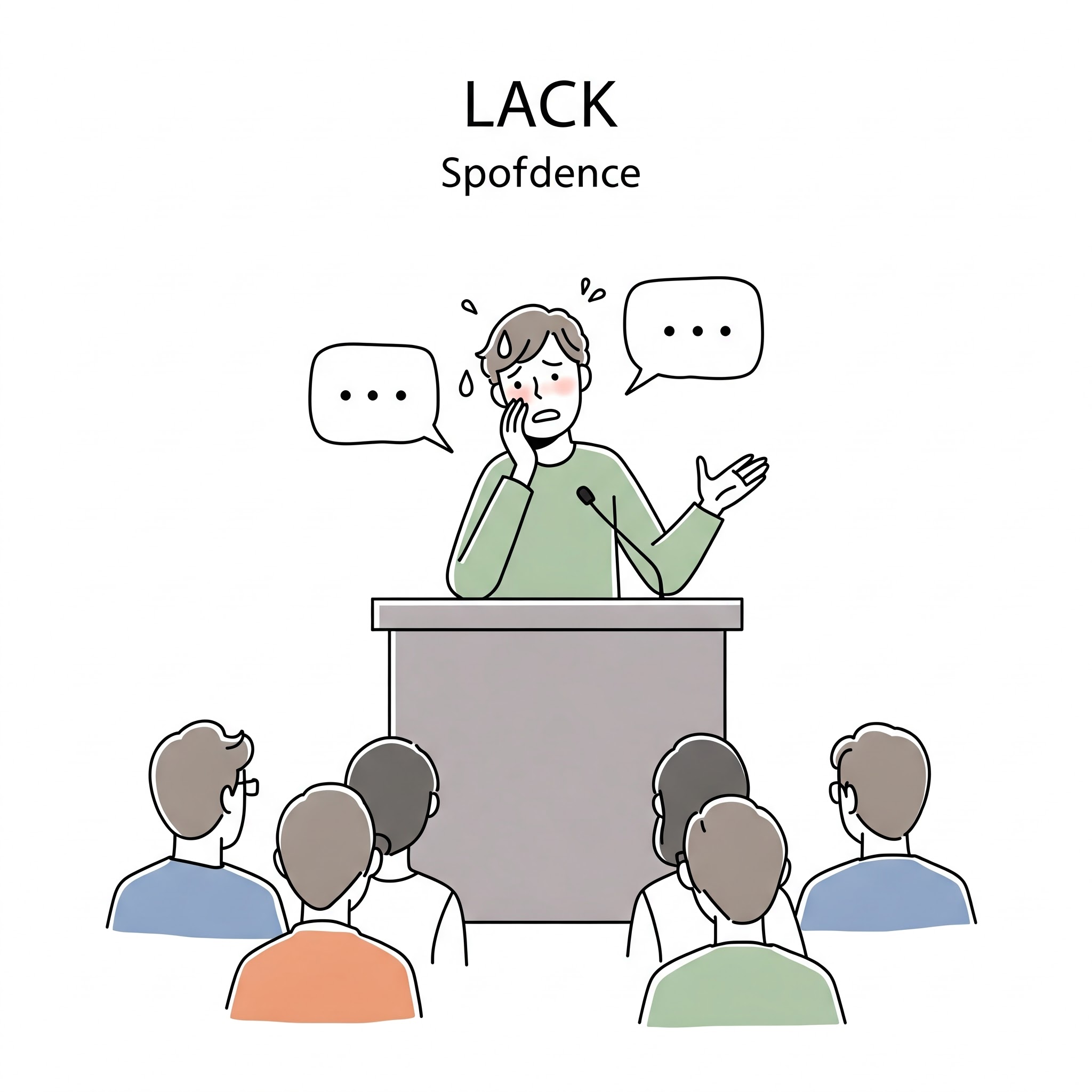Lack
Definition
Lack can function as both a noun and a verb. As a noun, it refers to the absence or deficiency of something needed or desired. As a verb, it means to be without or deficient in something necessary or required.
Parts of Speech
- Noun
- Verb
Pronunciation
American English
- IPA Pronunciation: /læk/
- Respelling: LAK
British English
- IPA Pronunciation: /læk/
- Respelling: LAK
Etymology
The word "lack" originates from Middle English "lak" or "laken," meaning "failure, fault, or deficiency," which derives from Old Norse "laka," meaning "to diminish" or "decrease." It entered English usage in the late 14th century.
Derivatives
- Lacking (adjective)
- Lackluster (adjective)
- Unlacking (adjective)
- Lackadaisical (adjective)
- Lackey (noun, unrelated but etymologically linked)
Synonyms
- Absence
- Deficiency
- Scarcity
Antonyms
- Abundance
- Presence
- Sufficiency
Usage
The word "lack" is commonly used in contexts where there is an absence or insufficiency of something. For example, "There is a lack of resources in the region." As a verb, it is often used to describe the state of being without something essential, e.g., "He lacks the qualifications for the job."
Related Terms
- Deficiency: A state of lacking or not having enough.
- Shortage: An insufficient quantity of something.
- Absence: The nonexistence or lack of something.
Detailed Definitions
Noun
- The state of being without something needed or desired: Refers to an absence or insufficiency.
- Example: "The team's failure was due to a lack of preparation."
- An insufficiency of quantity or quality: Indicates that there is not enough of something.
- Example: "A lack of funding has delayed the project."
Verb
- To be without something necessary or desirable: Describes the condition of not having something.
- Example: "She lacks confidence in public speaking."
- To experience deficiency in quantity or quality: Indicates a shortfall or absence in resources or attributes.
- Example: "The document lacks important details."
lack



🇨🇳 Mandarin
- 缺乏 (quē fá): absence
- IPA: /t͡ɕʰyɛ̂ fǎ/
- English Respelling: chyueh fa
- 短缺 (duǎn quē): shortage
- IPA: /twàn t͡ɕʰyɛ́/
- English Respelling: twahn chyueh
🇮🇳 Hindi
- कमी (kamī): deficiency
- IPA: /kəmiː/
- English Respelling: kuh-mee
- अभाव (abhāva): absence
- IPA: /əbʱaːʋ/
- English Respelling: uh-bhahv
🇪🇸 Spanish
- Falta (falta): absence
- IPA: /'falta/
- English Respelling: fahl-tah
- Carencia (carencia): shortage
- IPA: /ka'renθia/
- English Respelling: kah-ren-thee-ah
🇫🇷 French
- Manque (manque): shortage
- IPA: /mɑ̃k/
- English Respelling: mahnk
- Absence (absence): absence
- IPA: /absɑ̃s/
- English Respelling: ab-sahnss
🇸🇦 Arabic (Modern Standard)
- نقص (nuqs): deficiency
- IPA: /nuqs/
- English Respelling: nukss
- غياب (ghiyāb): absence
- IPA: /ɣijaːb/
- English Respelling: ghee-yaab
🇧🇩 Bengali
- অভাব (ōbhāb): absence
- IPA: /obʱab/
- English Respelling: oh-bhahb
- ঘাটতি (ghāṭati): deficiency
- IPA: /ɡʱaʈi/
- English Respelling: ghaa-ti
🇷🇺 Russian
- Недостаток (nedostatok): shortage
- IPA: /nʲɪdɐˈstatək/
- English Respelling: nye-do-stat-ok
- Отсутствие (otsutstvie): absence
- IPA: /ɐtˈsutstvʲɪje/
- English Respelling: ot-soot-stvyee-yeh
🇵🇹 Portuguese
- Falta (falta): absence
- IPA: /ˈfawʎtɐ/
- English Respelling: fawl-tah
- Carência (carência): shortage
- IPA: /kaˈɾẽsjɐ/
- English Respelling: kah-ren-syah
🇮🇩 Indonesian
- Kekurangan (kekurangan): deficiency
- IPA: /kə.ku.rɑŋ.ɑn/
- English Respelling: kuh-koo-rang-an
- Ketidakadaan (ketidakadaan): absence
- IPA: /kə.ti.dɑ.kɑ.dɑ.ɑn/
- English Respelling: kuh-tee-dah-kah-dah-an
🇩🇪 German
- Mangel (mangel): shortage
- IPA: /ˈmaŋəl/
- English Respelling: mang-ul
- Fehlen (fehlen): absence
- IPA: /ˈfeːlən/
- English Respelling: fay-luhn
🇯🇵 Japanese
- 不足 (fusoku): deficiency
- IPA: /ɸɯᵝsokɯᵝ/
- English Respelling: foo-soh-koo
- 欠如 (ketsujo): absence
- IPA: /ketsɯ̥ꜜd͡ʑo/
- English Respelling: ket-soo-joh
🇻🇳 Vietnamese
- Thiếu (thiếu): shortage
- IPA: /tʰiəw˨˩/
- English Respelling: thee-ew
- Vắng mặt (vắng mặt): absence
- IPA: /vaŋ˨˩ mak˦ˀ˥/
- English Respelling: vang mat
🇰🇷 Korean
- 부족 (bujok): deficiency
- IPA: /bu.dʑok̚/
- English Respelling: boo-jok
- 결여 (gyeolyeo): absence
- IPA: /ɡjʌl.jʌ/
- English Respelling: gyeol-yeo
🇹🇷 Turkish
- Eksiklik (eksiklik): deficiency
- IPA: /ek.sik'lik/
- English Respelling: ek-sik-lik
- Yokluk (yokluk): absence
- IPA: /jok'luk/
- English Respelling: yok-luk
🇵🇰 Urdu
- کمی (kamī): deficiency
- IPA: /kəmiː/
- English Respelling: kuh-mee
- غیاب (ghiyāb): absence
- IPA: /ɣijaːb/
- English Respelling: ghee-yaab





